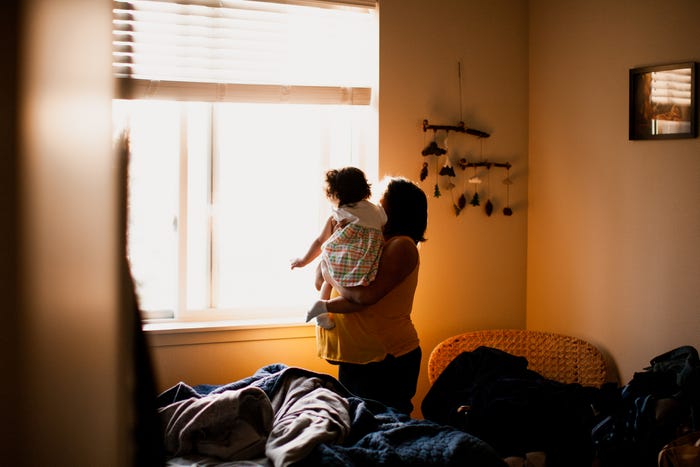Top Stories
Urgent: Multigenerational Living Surges as Families Face New Realities

UPDATE: A significant trend is emerging in family dynamics as multigenerational living arrangements become increasingly common. Families are re-evaluating their living situations in response to rising costs and the complexities of caregiving, with many, like Rosa from New Jersey, sharing homes with aging parents for over a decade.
Rosa’s experience highlights a growing reality: after the death of her father, her mother moved in with her, leading to a shared household that has lasted for 10 years. This arrangement was initially driven by financial necessity—but it has evolved into a complex emotional landscape. As housing costs soar and personal expenses mount, many families, especially within the Latinx community, find multigenerational living not just practical but essential.
Reports indicate that millennials are increasingly becoming part of the sandwich generation, balancing the demands of raising children while caring for aging parents. However, this demographic faces unique challenges. Unlike previous generations, they contend with higher living costs, fewer support systems, and the relentless pace of modern life.
While financially beneficial—Rosa notes that combining incomes helped alleviate financial strain—this living situation has intensified her responsibilities. She is now tasked with scheduling her mother’s medical appointments and managing her medications, all while navigating her own career and parenting duties. The emotional costs of caregiving can far exceed the financial savings, a reality that many are unprepared for.
As Rosa reflects, “The role reversal hit me hard. Watching her fade from the caretaker she once was to someone in need of care broke my heart in unexpected ways.” The emotional weight is compounded by everyday decisions that now carry significant implications. Should she take a trip, or is it selfish to desire time alone?
Despite these challenges, there are silver linings. Rosa cherishes shared meals and the deepening bond with her mother. The experience has heightened her understanding of aging and the fragility of independence, making her more empathetic and resilient. “Caring for your parents doesn’t mean losing your own life,” she asserts, emphasizing that this journey requires boundaries, shared support, and grace.
The trend of multigenerational living is not just a response to financial pressures; it represents a profound emotional commitment that reshapes family dynamics. As this reality unfolds, more individuals will likely find themselves navigating the challenges and rewards of sharing their homes with aging loved ones, highlighting a critical shift in societal norms.
As families adapt to these new living arrangements, the conversation around caregiving, financial stability, and emotional health continues to evolve. What happens next in this ongoing trend will be crucial for understanding the future of family structures in an increasingly complex world.
-

 Science3 weeks ago
Science3 weeks agoInventor Achieves Breakthrough with 2 Billion FPS Laser Video
-

 Health4 weeks ago
Health4 weeks agoCommunity Unites for 7th Annual Into the Light Walk for Mental Health
-

 Top Stories4 weeks ago
Top Stories4 weeks agoCharlie Sheen’s New Romance: ‘Glowing’ with Younger Partner
-

 Entertainment4 weeks ago
Entertainment4 weeks agoDua Lipa Aces GCSE Spanish, Sparks Super Bowl Buzz with Fans
-

 Business4 weeks ago
Business4 weeks agoTyler Technologies Set to Reveal Q3 Earnings on October 22
-

 Entertainment4 weeks ago
Entertainment4 weeks agoMother Fights to Reunite with Children After Kidnapping in New Drama
-

 World4 weeks ago
World4 weeks agoR&B Icon D’Angelo Dies at 51, Leaving Lasting Legacy
-

 Health4 weeks ago
Health4 weeks agoCurium Group, PeptiDream, and PDRadiopharma Launch Key Cancer Trial
-

 Entertainment4 weeks ago
Entertainment4 weeks agoRed Sox’s Bregman to Become Free Agent; Tigers Commit to Skubal
-

 Health4 weeks ago
Health4 weeks agoNorth Carolina’s Biotech Boom: Billions in New Investments
-

 Science4 weeks ago
Science4 weeks agoNorth Carolina’s Biotech Boom: Billions Invested in Manufacturing
-

 Top Stories3 weeks ago
Top Stories3 weeks agoFormer Mozilla CMO Launches AI-Driven Cannabis Cocktail Brand Fast








